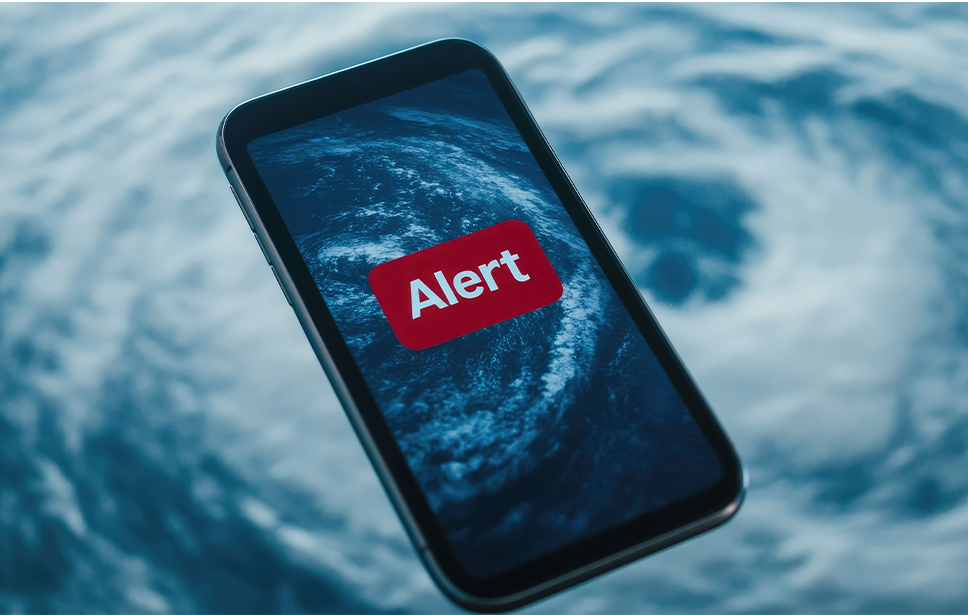Get to know them here and learn how to prevent them
Hurricane season in Puerto Rico couldn't just bring rain and strong winds – it could also bring an increase in scams and the risk of being a victim of fraud. Therefore, we want to help you protect what you value most: your home, family, and money. Don't fall for the scam! God forbid a hurricane comes! But if it does, you should be aware of the two most common scams and how to avoid falling for them.
Two of the most common scams during hurricane season, and how to prevent them:
1. Fake fundraisers to help the victims
-
People or websites identify themselves using the name of a supposed non-profit entity in order to "raise funds for the hurricane victims." However, they keep the money.
Here are some steps to make sure they're genuine:
-
Look for their official registration
-
In Puerto Rico, check the Department of State's Registry of Corporations
-
If the entity claims to be a non-profit, check to see if they are registered under Section 1101.01 of the Internal Revenue Code, and whether they have tax exemption.
-
Consult lists of recognized entities
-
FEMA, the American Red Cross, and platforms such as Charity Navigator publish lists of legitimate organizations and their history of fund use.
-
Check if they're in the IRS Exempt Organizations Guide
-
Research their digital presence
-
Look for their official website, verified social networks, and news about them in recognized media.
-
Be suspicious if they only have new profiles or those with little activity.
-
Ask for transparency
-
Ask for information on how donations are distributed, as well as previous fundraising activities.
-
Avoid suspicious links
-
Never donate through links via text messages, social networks, or unsolicited emails.
-
Always access them through their official website, and enter it yourself in your browser.
2. Repair and construction scams:
-
Alleged contractors offer to repair your roof or structure, then ask for payment in advance and never return. Learn how to verify whether they're legitimate:
-
Confirm their license or registration
-
In Puerto Rico, access the Contractor Registry from the Office of the Insurance Commissioner. Check with the Engineers and Surveyors Association if they claim to be engineers or architects.
-
You can also check with the Contractors Examination Board to find out if they're properly authorized.
-
Ask for references and previous work
-
Ask for past customers' photos, addresses, and contacts, and call them for references.
-
Research their reputation online
-
Search for their name in Google, and include words such as "fraud," "scam," or "complaint."
-
Check out comments on social media and local community forums.
-
Verify insurance and permits
-
A legitimate contractor must have liability insurance and, if applicable, building permits.
-
You can confirm permits with the Municipality, or at the Office of Permit Management (Spanish acronym OGP).
Now you know. If it sounds too good to be true, it's most likely a scam!
Your financial security is just as important as your physical safety in an emergency. Stay alert, do your research, and don't fall for scams!
Follow us on Facebook and get the latest fraud alerts.
Call us: 1-787-725-2511
Follow us:
Facebook https://www.facebook.com/firstbank/
Instagram @firstbank_pr
Visit us: https://www.1firstbank.com/pr/en
The contents in this section are provided for informational and educational purposes only and do not apply to all types of situations. The contents should not be construed as any type of advice or suggestion to take (or refrain from taking) any particular action, as it does not include or take into account all factors that may be relevant to your individual needs.

